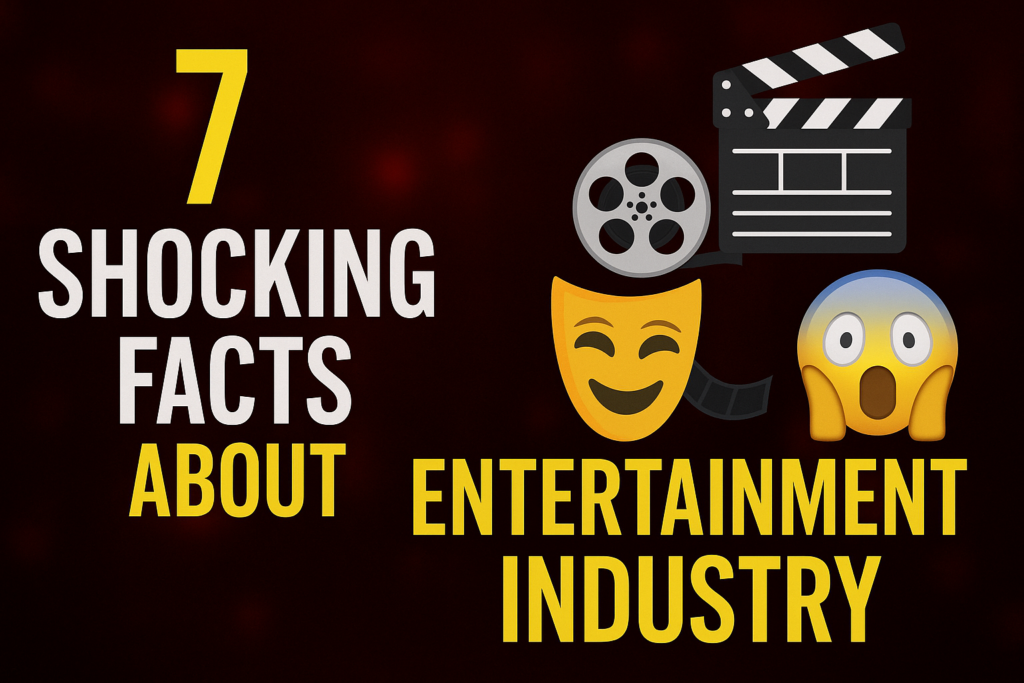
Entertainment is an essential part of human life, providing a means of relaxation, excitement, and connection. It spans across various forms, including movies, music, television, theater and online content, making it a versatile industry that caters to diverse audiences. From the glamour of Hollywood to the thriving digital content creators, the entertainment industry has become a global phenomenon.
The significance of entertainment is not just about fun and leisure. It is a multi-billion-dollar industry that influences culture, shapes opinions, and even drives technological advancements. Artists, performers, creators, and executives work together to bring stories to life, while millions of viewers worldwide engage with this content daily.
Having been part of the entertainment world myself, I have witnessed the industry’s vibrant side and its less glamorous aspects. From the behind-the-scenes hustle to the creative processes, my personal journey has given me a unique perspective on the realities of this sector. In this blog, I will share seven shocking facts about the entertainment industry, supported by insights from global experts.
1. The Financial Inequality in Entertainment
One of the most shocking aspects of the entertainment industry is the vast financial disparity. While top actors, musicians, and directors earn millions, countless other professionals struggle with low wages and job insecurity. According to a report by the World Economic Forum, the top 1% of artists earn more than the remaining 99% combined.
2. Exploitation Behind the Glamour
Despite its glamorous facade, the entertainment industry is rife with exploitation. Aspiring artists are often lured into unfavorable contracts, and many face harassment or discrimination. The #MeToo movement exposed widespread abuse in the industry, with many high-profile figures being held accountable.
3. The Rise of Artificial Intelligence in Entertainment
Artificial intelligence (AI) is transforming the entertainment industry, from CGI effects in movies to personalized content recommendations on streaming platforms. According to McKinsey, AI is expected to revolutionize content creation and distribution in the next decade.
4. Mental Health Challenges Among Entertainers
Mental health is a critical issue in the entertainment industry, with many performers facing anxiety, depression, and burnout. According to a study by the American Psychological Association, entertainers are three times more likely to experience mental health issues than the general population.
5. The Dominance of Streaming Platforms
Streaming platforms like Netflix, Amazon Prime, and Disney+ have reshaped the entertainment industry. They provide global access to content but have also led to increased competition and pressure on creators. Statista reports that over 60% of global viewers now prefer streaming services over traditional cable.
6. Intellectual Property Theft and Piracy
Piracy remains a significant challenge for the entertainment industry, with creators losing billions in revenue each year. Despite technological advancements, illegal downloads and unauthorized distribution continue to undermine artists’ earnings.
7. The Evolution of Audience Preferences
Audience preferences are constantly evolving, and the entertainment industry must adapt. From the rise of short-form content on TikTok to the popularity of immersive VR experiences, creators must stay innovative to remain relevant.
Expert Opinions on the Entertainment Industry
- “The future of entertainment lies in personalized experiences, powered by AI and data-driven insights.” – Dr. Amy Webb, Futurist.
- “Creators must prioritize mental health and well-being to sustain long-term careers in entertainment.” – Dr. John Mayer, Psychologist.
- “Diversity and inclusion are crucial for the industry’s growth and relevance.” – Ava DuVernay, Director.
- “Content piracy is a global issue that requires collaborative solutions.” – Francis Gurry, Former WIPO Director.
Conclusion
The entertainment industry is a dynamic world of opportunities and challenges. My journey in this sector has shown me both the glamorous and harsh realities. Understanding these shocking facts is essential for anyone aspiring to enter this field or simply enjoy its content responsibly.
References
- World Economic Forum Report on Entertainment Inequality
- McKinsey Insights on AI in Entertainment
- American Psychological Association Study on Mental Health in Entertainment
- Statista Report on Streaming Services
FAQ
What is the worth of the Entertainment Industry?
The global entertainment industry is worth over $2.3 trillion, with significant contributions from film, music, television, gaming, and online content sectors. This value continues to grow as digital platforms expand and new markets emerge.
What are the most common jobs in the Entertainment Industry?
The entertainment industry offers a wide range of jobs, including actors, musicians, directors, producers, screenwriters, editors, graphic designers, sound engineers, makeup artists, stage managers, and social media influencers. Behind-the-scenes roles such as talent agents, publicists, and production assistants are also essential.
Which are the top companies in the Entertainment Industry?
Some of the top companies in the entertainment industry include:
- The Walt Disney Company
- Warner Bros. Discovery
- Sony Pictures Entertainment
- Universal Pictures
- Netflix
- Amazon Prime Video
- Spotify
- YouTube
What is an Overview of the Entertainment Industry?
The entertainment industry encompasses a wide range of sectors that provide amusement, information, and artistic expression to the public. This includes film, television, music, video games, live performances, and digital content. The industry is driven by creativity, technology, and constantly evolving audience preferences. It is one of the largest sectors of the global economy, with significant cultural and economic impacts.
